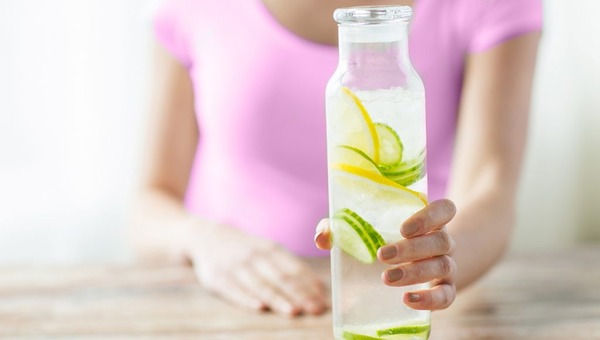How to Stay Hydrated During Fasting: Tips for Ramadan

Ramadan, a sacred month observed by Muslims around the world, involves fasting from dawn till sunset. While abstaining from food and drink during daylight hours is an integral part of this spiritual practice, staying hydrated remains essential to ensure your well-being and maintain good health. In this blog post, we will explore practical strategies to help you stay hydrated during fasting while respecting the traditions and significance of Ramadan.
The Importance of Hydration During Fasting
Hydration is crucial for maintaining bodily functions, energy levels, and overall well-being. Even during fasting, ensuring adequate fluid intake is vital to prevent dehydration and its associated health risks. Dehydration can lead to fatigue, dizziness, headaches, and other discomforts, which can potentially affect your ability to engage in worship, daily activities, and work.
Practical Tips for Staying Hydrated During Fasting
Pre-Dawn Meal (Suhoor)
Begin your day with a nourishing and hydrating pre-dawn meal. Include foods that have a high water content, such as fruits (watermelon, oranges, cucumbers), yogurt, and watery vegetables.
Optimal Hydration Before Fasting Hours
Consume plenty of fluids during the hours you are allowed to eat and drink. Aim to hydrate with water, herbal teas, and hydrating foods that release water slowly (like oatmeal and soups).
Avoid Caffeine
Caffeinated beverages like coffee and certain teas can contribute to dehydration due to their diuretic effect. Limit or avoid these drinks during fasting hours.
Break Your Fast Wisely (Iftar)
Begin your iftar (breaking of the fast) with dates and water, as per the tradition of Prophet Muhammad. Dates provide natural sugars for quick energy, and water helps rehydrate your body.
Read More : How to Incorporate Ayurvedic Principles into Your Lifestyle
Hydrating Beverages
During non-fasting hours, consume hydrating beverages such as water, herbal teas, coconut water, and natural fruit juices (without added sugars). These beverages contribute to your overall fluid intake.
Monitor Fluid Intake
Keep track of your fluid intake by using a water bottle with measurements or setting reminders on your phone. This helps ensure you’re meeting your hydration goals.
Avoid Sugary Drinks
Sugary sodas and fruit juices with added sugars can lead to blood sugar spikes and may not be as effective for hydration. Opt for plain water or naturally sweetened alternatives.
Electrolyte Balance
Fasting can lead to the loss of electrolytes like sodium, potassium, and magnesium. Include electrolyte-rich foods like bananas, oranges, and yogurt to maintain balance.
Hydration Through Foods
Incorporate water-rich foods into your meals. Include salads, fruits, soups, and stews that contribute to your fluid intake.
Sip Gradually
Avoid gulping large amounts of water at once during iftar. Instead, sip water gradually to give your body time to absorb and utilize it effectively.
Listen to Your Body
Pay attention to your body’s signals of thirst and hydration. If you feel thirsty, reach for water or hydrating beverages.
Rehydrate After Physical Activity
If you engage in physical activity during fasting hours, be sure to rehydrate promptly after the activity to replace fluids lost through sweat.
Avoid Overeating
Overeating during iftar can lead to discomfort and make it challenging to consume enough fluids. Opt for balanced meals to ensure proper hydration.
Limit Salty Foods
Foods high in salt can contribute to dehydration. Limit your intake of salty snacks and processed foods.
Hydrate Moderately
While staying hydrated is essential, excessive water intake during non-fasting hours can disrupt your digestive system. Aim for a balanced approach.
Also Read : How to Stay Hydrated While Traveling by Plane
Conclusion
Staying hydrated during fasting in Ramadan is not only about physical well-being but also about maintaining your spiritual devotion and ability to engage fully in the practices of the month. By implementing these practical strategies, you can strike a balance between observing the fast and ensuring your body remains hydrated and energized. Remember that the key lies in mindful hydration and making conscious choices that respect both the traditions of Ramadan and your body’s hydration needs. As you navigate this sacred month, may your efforts toward maintaining hydration contribute to a fulfilling and spiritually rewarding experience.




